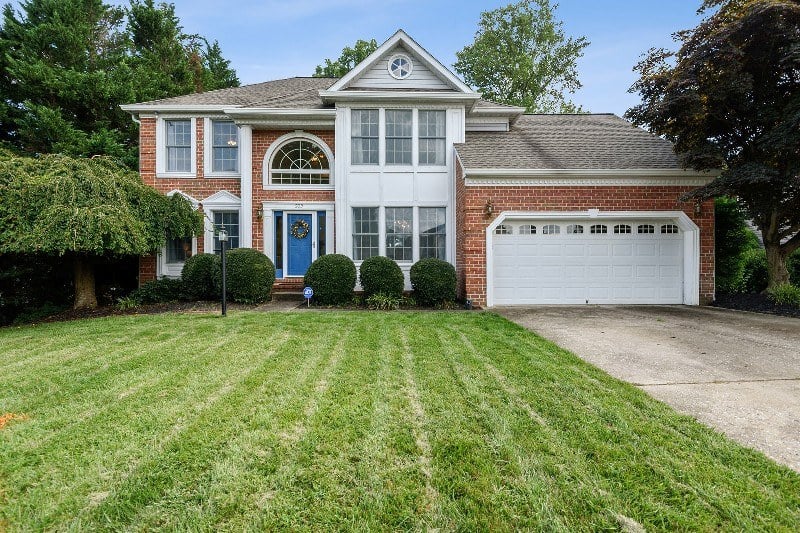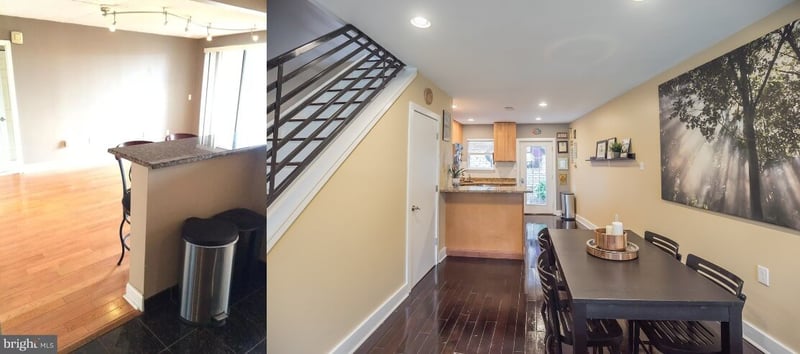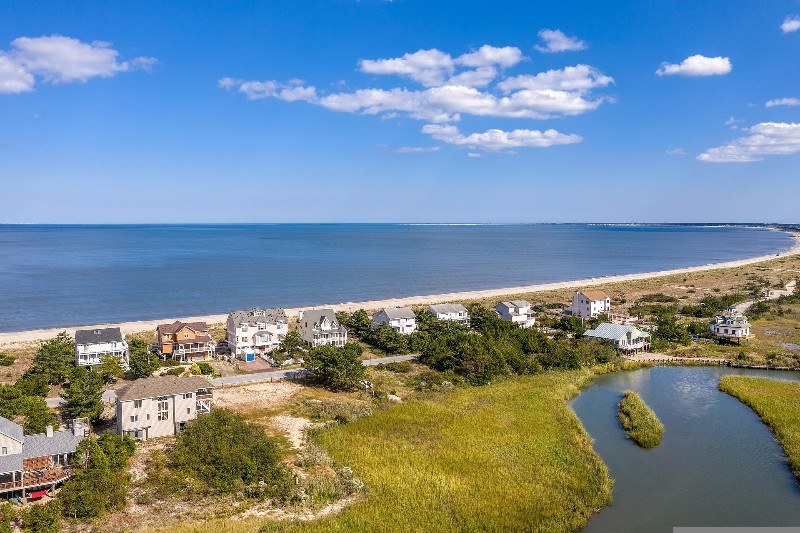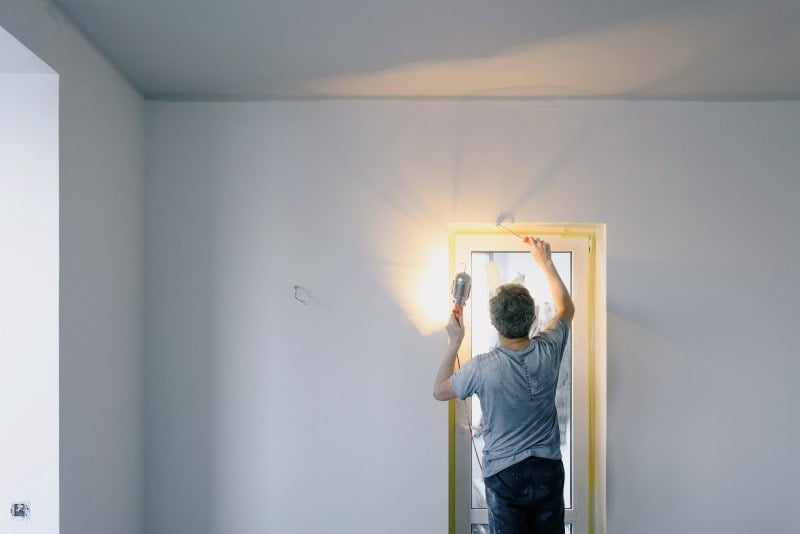
The Second-time Home Buyer Experience
Posted on Mar 31, 2022
According to Rocket Mortgage, first-time home buyers live in their homes for an average of 11 years...

Posted on Mar 31, 2022
It's been a wild time to be a homeowner. Home values in Philadelphia increased by about 12% over the last year - and about 57% over the past five years (source: Zillow).
For homeowners who have been considering selling their homes, there has likely never been a better time to do so. If you’re thinking about selling your home in Philadelphia, here’s what you need to know.
It’s a good time to sell your home whether you’re in Philadelphia or Pennsylvania in general. Why? Mortgage rates have been falling, and buyers have adjusted to the reality that 3% is not coming back anytime soon. Many buyers are expected to enter the spring market. For many sellers, it will be the rise in demand they've been waiting for.
According to Redfin's latest housing market data (for Dec. 2022), median price was down 3.9% year-over-year, but the number of homes sold was also down 40.4%. It's likely that most sellers who could wait for the spring market and the increased number of buyers it would bring, were choosing to do so.
Having even two offers on your home, instead of one, can help you make thousands of dollars more on your home sale and reduce the number of contingencies you need to deal with - because it's competition that drives up offers.
And when it comes to what time of year to sell a home in Philadelphia, spring is king.
“Time of the year does play a crucial part. Our spring market is the ideal time to be listing a home - that is when we have the most buyers out there. Now, that doesn’t mean a home listed in December isn’t going to have a lot of activity, because some of them do,” Stephenson notes. “But if you really want to maximize the number of people seeing your home, you want the Spring market. Which right now in Philly, starts pretty early - the middle of January, which doesn't sound like the spring, but that’s actually when we start getting busy.”
The other thing to keep in mind is known versus unknown. We know what the mortgage rate is today - we don't know what it will be a year from now. And if it goes back up, buyer interest will dwindle.
"Is the interest rate going to go up or go down? That's a wild card,” notes Philadelphia-based listing specialist Chad Eason. “You don't know - could be either. Actually, it could be both - it could go up and then come back down and then go back up. We don't know.”
The first step to selling your home in Philadelphia is finding an experienced local Realtor (read 15 essential questions to ask a Realtor for tips on choosing one). We recommend finding someone who’s familiar with your neighborhood, is experienced with negotiating, has positive reviews from past clients, and focuses on the sell-side of the transaction.
“Plan ahead,” advises Stephenson. “If you know that you plan on listing your home in 3-6 months, start going through the home now to declutter, touch up spots, and get things ready. So that when we meet, we can list it and take the pictures real quick. A lot of people I meet with don’t realize how much work they have to do, so we can’t even get their home listed for a month or two until they take care of the stuff I can’t help them with.”

It costs money to sell your home - so what sort of expenses can you expect?
As noted in Closing Costs in PA,
Typical seller closing costs include:
Closing costs can be roughly estimated as a percentage of the home's selling price. Philadelphia-based Realtor Allison Dubovsky explains that, "Based on my experience, 7% of the purchase price, that’s on the high end, so I would aim to have that - and if it’s only 5%, then you’re lucky, so to speak."
As an example, the current median listing price of a home is $285,000 in Philadelphia. For this home, sellers should save from $14,300 - $19,950 to cover closing costs.
Houwzer is one of the top-rated brokerages for home sellers in Philadelphia for several reasons.
The cost of selling a home often comes as a surprise to first-time sellers, in fact.
“For people who have never sold a home before, they don’t really understand what the costs are to sell a home, and how much our model will actually save them,” Stephenson explains. “They don’t know what fees they’re responsible for. They may have bought a home, but when you sell a home there are totally different fees that you’re dealing with.”
For the most part, selling a home in Philadelphia is similar to selling a home anywhere else. What you may want to pay attention to is closing costs, which often differ state by state - so what you’ve experienced before may not line up with your experience here. In PA, for example, transfer taxes (4% of the transaction) are typically split between the buyer and the seller (so the seller pays 2%). For a $400,000 home, that’s $8,000. For more info, visit Closing Costs in PA: What Home Buyers Need to Know.
Stephenson agrees that home sellers should make themselves aware of transfer taxes and notes that due to the age of many homes in Philadelphia, another thing sellers should be aware of is: “Your sewer lines. They often crack because they’re old pipes, and then the tree roots can crack them as well. You don’t see as many of those issues in the suburbs as you do in Philadelphia.”
While this is more of an issue for the home’s buyer, rather than the seller, be aware that it could lead to a more complicated inspection. Or on the other hand, if your sewer lines have recently been checked or replaced, you may want to highlight this to buyers as one less thing to worry about.
When you hear about your neighbor the next block over selling their home for $100,000 over asking, it’s easy to get caught up in the excitement. It’s not uncommon for sellers to overprice their homes, hoping that someone will pay for it anyway.
The problem with this approach is two-fold. First, homes in Philadelphia vary widely in terms of perceived value. The neighborhood next to yours might be considered much more attractive to buyers because it receives less traffic, despite being just a stone’s throw away. Pricing your home to attract only the most desperate buyers on the market - who are not as price-sensitive - is not a great profit strategy because again, it’s competition for homes that truly drives prices up.
If you price your home too high just because your neighbor did and your home doesn’t sell in the first few weeks, buyers are going to start wondering: “what’s wrong with it?”
“The first week on the market is when your property is going to be the hottest. If we list a home and I know that it’s overpriced - which has happened - we are not going to get the activity through the door that first week, which is the most crucial time to list," warns Stephenson. "Once you get past that first week, you have to make price reductions and stuff like that. So pricing appropriately is extremely important for getting people in right when the home comes on the market.”
Whether it’s open houses, signs, flyers or online listings, there are plenty of ways to advertise homes to interested buyers. When it comes to which marketing technique is the most effective, though, Stephenson explains that professional photography is key.
“People are pulled to the house by the pictures that we post. If we have good pictures, they come out to the home,” he says. “You’ll see some other agents who post cell phone pictures of the place, or stuff like that - that's not going to get the people out there, and that’s going to result in them not getting top dollar for their home.”
One of the benefits of working with Houwzer is that they ensure every listing has professional photography in order to ensure it gets more views - and subsequently more interest from buyers.
“At Houwzer we have a couple of companies that we work with - they produce the highest quality of pictures, and take the important pictures to show the home off on the MLS,” explains Stephenson. “That is one reason we get more people drawn to our listings, as opposed to other local Realtors who may skip on the cost of photography and the home just doesn’t get the activity that it should.”
Interested in selling a home in Philadelphia with Houwzer (and saving an average of $15,000)?

Left photo: Cell phone photo. Poor staging and a vertical shot mean the photo is focused on the trash bin, and it’s difficult to see the room’s size or its features. Low resolution means a blurry light fixture.
Right photo: Houwzer’s photo uses a wide-angle lens and a strategic angle to make the room feel open and inviting. It’s easy to see the room’s entire layout.
Subscribe to our newsletter to get essential real estate insights.

Posted on Mar 31, 2022
According to Rocket Mortgage, first-time home buyers live in their homes for an average of 11 years...

Posted on Mar 31, 2022
Delaware is a popular state to move to, especially for residents of nearby Pennsylvania, New...

Posted on Mar 31, 2022
About 7% of all homes on the market today are flipped homes. With the rise of shows like Flip This...